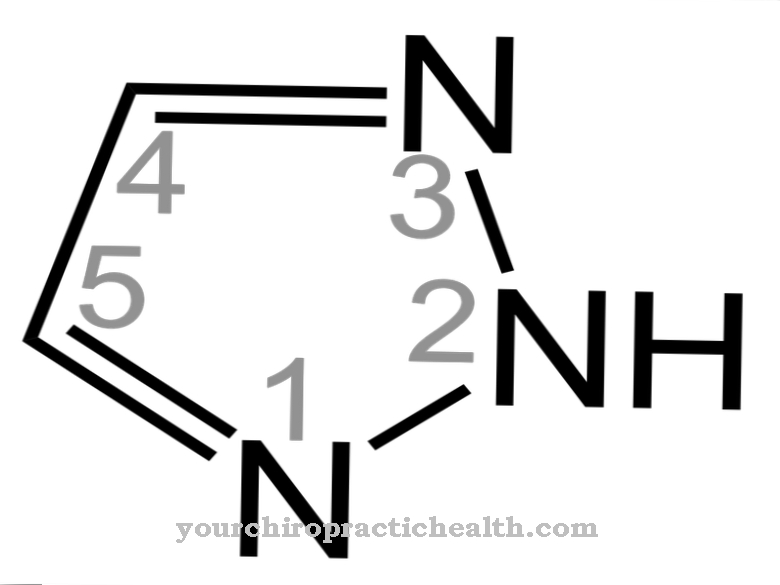Statin belongs in medicine to pharmacological substance class 3 of 3-hydroxy-3-methylglutaryl-coenzyme A reductase inhibitors (HMG-CoA reductase). HMG-CoA is an intermediate product of cholesterol synthesis in humans, which is why statins are used to lower cholesterol in disorders of lipid metabolism.
What is statin?

Statins are so-called CSE inhibitors and thus lead to a lowering of the cholesterol level in the blood.
Statins is, however, also an alternative name for the so-called inhibiting hormones (neurohormones) of the hypothalamus (regulatory center in the diencephalon).
Statins in the form of drugs influence the lipid metabolism and have the highest potency.
Pharmacological effect
Statins have different effects on the human body. Statins, for example, act primarily as lipid lowering agents and inhibit HMG-CoA reductase. HMG-CoA is a substance that is required by the body for the biosynthesis of cholesterol. This means that the body produces less cholesterol when taking statins.
The cells are usually deficient in cholesterol, so they produce multiple amounts of LDL receptors. LDL is responsible for some damage (e.g. atherosclerosis), the use of statins removes the LDL from the bloodstream and the risks of diseases such as heart attacks or strokes are thereby reduced. Statins also act as a kind of stabilizer for arteriosclerotic deposits (plaques) on blood vessels. Here they show an indirect anti-inflammatory effect.
Controlled studies show that statins are now also used for so-called immunomodulation. They can be used in transplant surgery or in the treatment of multiple sclerosis, among other things. However, some research is still necessary here before statins can actually be used in these areas. Studies from 2012 show that statins can have positive effects on the treatment of cancer. For example, the risk of dying from cancer for patients over 40 years of age was 15 percent lower if they took statins.
Medical application & use
Statins are always used when patients are affected by isolated hypercholesterolemia (high cholesterol level in the blood, e.g. polygenic or familial hypercholesterolemia) or by combined hyperlipidemia (increased cholesterol, increased triglycerides, increased lipoproteins).
Statins can also be used as primary and secondary prophylaxis against arteriosclerosis. During therapy, statins lead to a reduction in the LDL concentration of up to 40 percent. Usually, HDL cholesterol increases at the same time.
Risks & side effects
So-called toxic myopathies are probably the most serious side effects of Statins. A toxic myopathy leads to structural and functional changes in the muscles of the skeleton.
Probably the most severe known form of toxic myopathy is the so-called rhabdomyolysis (dissolution of muscle fibers), which among other things results in complete paralysis of all limbs and often leads to death. Statins should also not be taken during pregnancy, as they have a so-called teratogenic effect (malformation) in humans.
There have been at least 60 cases of memory loss associated with the use of statins, and there is some evidence that memory performance and alertness may decrease while taking statins. Furthermore, observations could be made which indicate increased irritability and increased aggressiveness through the ingestion. Nightmares have also been reported after taking statins. Other side effects that are known in connection with the use of statins include damage to the liver, headache, nausea and vomiting, tiredness or sleep disorders, heartburn, flatulence in connection with abdominal pain, constipation or diarrhea, painful joints, sensitivity to Light, anemia, hair loss or damage to nerves.
In addition, the use of statins can lead to possible kidney damage; studies show that kidney problems are to be expected especially in the first two years of use. Furthermore, muscle pain and cramps, gastrointestinal problems, flu-like illnesses, eczema or even vascular inflammation can develop. It is also possible that statins have a reducing effect on the body's own Q10 metabolism. The risk of developing diabetes mellitus is also increased when taking statins.












.jpg)



.jpg)










.jpg)
